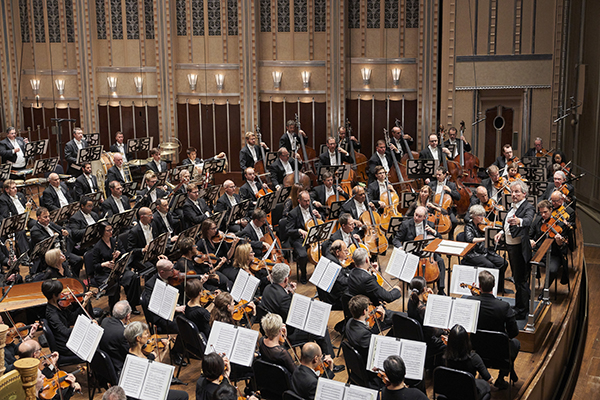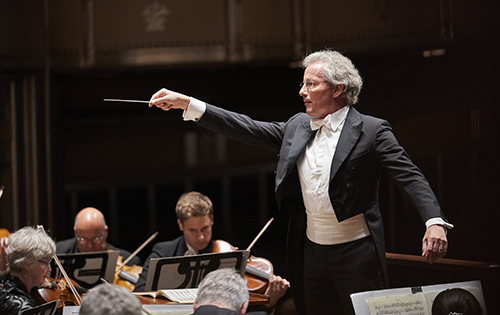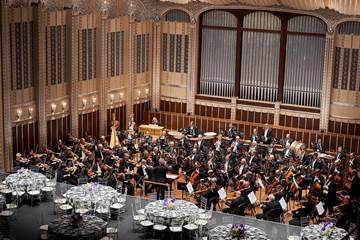by Daniel Hathaway

Schubert dealt the principal winds multiple opportunities to shine, and clarinetist Daniel McKelway stood out for his contributions in the first two movements.
Welser-Möst, who opened his inaugural Cleveland Orchestra concert with Schubert 3 in February of 1993, led a brisk performance with a particularly lively Menuetto and a Presto vivace finale that might have been labelled as a tarantella by virtue of the rhythmic figures that the players passed back and forth.
The first half of the evening having been dispatched in a mere 25 minutes or so, the second got into more lengthy and sumptuous stuff with Act I of Prokofiev’s Romeo and Juliet, for which a large orchestra filled the stage.
Act I comprises 21 brief but often dramatic movements, each painting colorful portraits of characters and events as Verona wakes to a new day, the always warring Montagues and Capulets confront each other in the street, and preparations for the masked ball go forward. More skirmishes at the ball lead to the famous balcony scene and a passionate orchestral love dance.
Solos were ubiquitous and many-hued — bassoon, tenor saxophone, clarinet, oboe, and flute all enjoyed important roles in the narrative — and angry shimmers from the upper strings and percussion grooves pointed up pivotal moments in the plot. The combination of tuba and piano at one point made a special effect.

What might have been a short evening grew to normal length after the audience roared their approval for the Prokofiev and inspired an encore after multiple callbacks and bows. It was a big one. Otto Nicolai’s Overture to The Merry Wives of Windsor caught a few early leavers unawares, but delighted everybody else with several more delicious minutes of orchestral dazzle.

Welser-Möst chose two flavors of Strauss for the concert: four selections from the neoclassical Le bourgeois gentilhomme which called for a small orchestra, then a concert suite from Der Rosenkavalier that drew on the full resources of The Cleveland Orchestra.
The incidental music for Molière’s play brought a number of fine soloists into the spotlight: pianist Joela Jones, trumpeter Michael Sachs, hornist Nathaniel Silberschlag, clarinetist Afendi Yusuf, oboist Frank Rosenwein, concertmaster Peter Otto, and cellist Mark Kosower, to name most of them. The Rosenkavalier suite is like a concerto for the whole ensemble, teeming with Straussian exuberance and musical multitasking. The Clevelanders met Strauss on equal terms if they didn’t actually top him for sheer orchestral virtuosity.
An encore — Johann Strauss Jr.’s Furioso Polka — put a festive button on the concert portion of the evening. The event, attended by 400 patrons, raised more than $1.2 million for the Orchestra’s education and community programs. And those who attended were first to hear the news that Franz Welser-Möst’s contract with the Orchestra has been extended through 2027.
Photos by Roger Mastroianni.
Published on ClevelandClassical.com September 24, 2019.
Click here for a printable copy of this article



